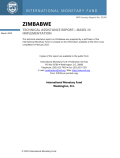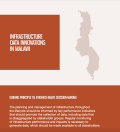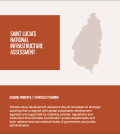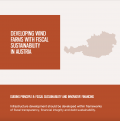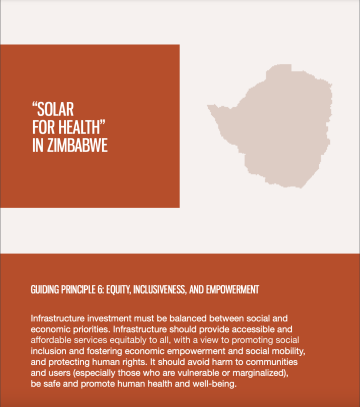
Zimbabwe’s social infrastructure services have historically been constrained by persistent energy shortages. Healthcare has been among the systems most affected by this massive power deficit. To help address these issues, in 2017, Zimbabwe began implementing the Solar for Health (S4H) Initiative with the United Nations Development Programme to harness the country’s abundant yet previously untapped renewable energy resources for this critical form of social infrastructure.
This case study illustrates Guiding Principle 6: Equity, Inclusiveness and Empowerment and is part of a series of ten case studies which aim to inform the forthcoming wave of global infrastructure investment. Collectively, they specify and demonstrate how environmental, social and economic sustainability must be integrated right across infrastructure policymaking at the systems-level. The individual principles and case studies were developed via ongoing global consultation and inputs from experts and UN Member States, as part of implementation of the UN Environment Assembly (UNEA) Resolution 4/5 on Sustainable Infrastructure.
These publications have been made possible by the financial support of the Global Environment Facility, the Swiss Federal Office for the Environment, and the Partnership for Action on Green Economy.
Also available in Chinese, French and Spanish.

